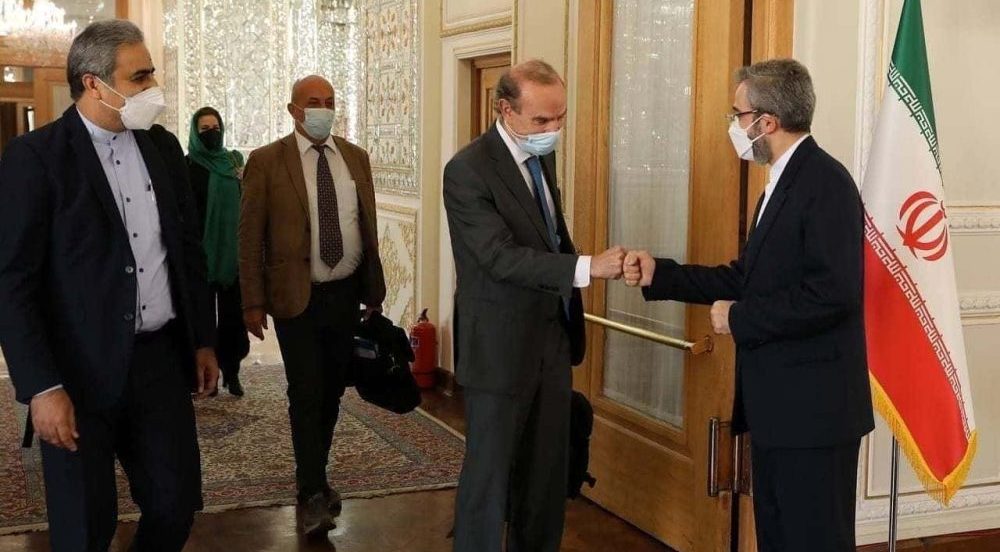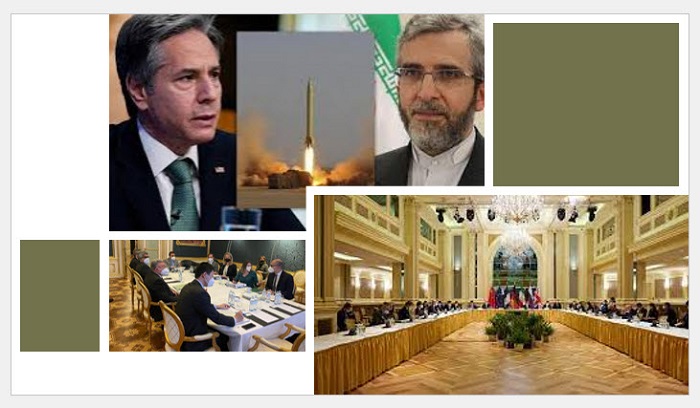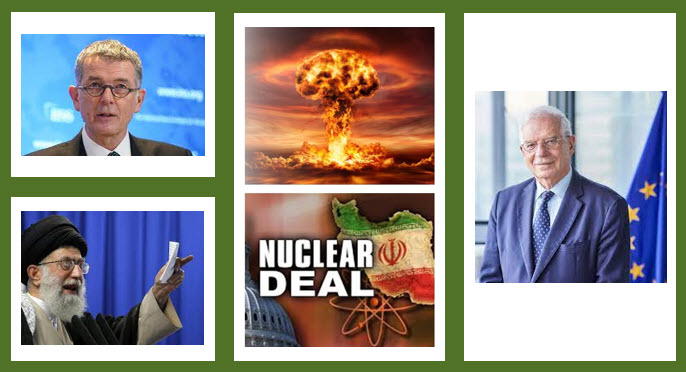
Tuesday, July 26, saw the introduction of a fresh draft text for the re-implementation of the 2015 Iran nuclear deal, according to the head of foreign policy for the European Union.
When negotiations between signatories of the Joint Comprehensive Plan of Action (JCPOA) were put on hold in Vienna in March, an earlier draft was reportedly still on the table. This draft was also present when those negotiations were briefly resumed in Doha earlier this month. The Iranian regime rejected that draft and demanded additional concessions, primarily from the US, during both negotiations and in a number of subsequent statements.
The new draft was presented to Tehran and the international community as the last possible compromise on open issues, though it wasn’t immediately clear what new concessions had been added. In a piece for the Financial Times, Josep Borrell stated, “I have now put on the table a text that addresses, in precise detail, the sanctions lifting as well as the nuclear steps needed to restore the JCPOA.” “The space for additional meaningful compromises has been exhausted,” he continued, “after 15 months of intense, constructive negotiations in Vienna and countless interactions with the JCPOA participants and the US.”
Iran’s chief nuclear negotiator appeared to reject the new draft right away, despite the implication that Tehran cannot hope to extract any further concessions from its negotiating partners. Ali Bagheri Kani acknowledged the existence of a new draft on Twitter but did not say whether his team had thoroughly reviewed it or not. He added, “We, too, have our own ideas, both in substance and form, to conclude the negotiations which would be shared.”

Ali Bagheri Kani acknowledged the existence of a new draft on Twitter but did not say whether his team had thoroughly reviewed it or not.
Further proof that the Iranian regime has no interest in reviving the JCPOA is provided by the apparent reflexive rejection of Borrell’s proposal. Several international media outlets presented this conclusion last week, citing quotes from Richard Moore, the head of British intelligence.
Moore went on to say that while other Iranian authorities were reluctant to abandon the nuclear program, the regime’s Supreme Leader Ali Khamenei had probably chosen an alternative course of action for responding to outside pressure. By delaying the automatic re-implementation and potential expansion of European Union sanctions and United Nations Security Council resolutions, Tehran is able to prolong the negotiations and buy time.

The regime’s Supreme Leader Ali Khamenei had probably chosen an alternative course of action for responding to outside pressure.
This perception of the regime’s strategy was confirmed on Monday when Nasser Kanani, the regime’s spokesman, stressed during his weekly press conference that Iran’s ruling theocracy would not submit to a “rushed process” or make a “quick decision” regarding the future of the JCPOA. Western assertions that “time is limited” were rejected by Kanani, who referred to them as “psychological pressure and unilateral expectations” which aimed to make the regime “sacrifice the country’s fundamental interests.”
Kamal Kharrazi, the former regime foreign minister and top adviser to Khamenei, highlighted the danger of any further closing of the negotiation window last week when he stated that it is “no secret” the regime already possesses the technical capacity to create a nuclear weapon.
He stated that existing nuclear facilities, having already surpassed the benchmark of 60% enrichment, could enrich uranium to weapons-grade quickly and easily.

Kamal Kharrazi, the former regime foreign minister and top adviser to Khamenei stated that the regime already possesses the technical capacity to create a nuclear weapon.
Many supporters of the regime have made an effort to calm fears by asserting that Iran would first need to develop delivery systems for such a weapon before posing a serious threat to the international community. But in this area as well, the Iranian government has been steadily pursuing pertinent advancements while merely maintaining that they have no intention of using them for a nuclear weapons program.
It is safe to reject Borrell’s claim that the fruitless nuclear negotiations with Iran were “constructive” given the regime’s aggressive approach and race to develop a nuclear weapon. To further its nefarious goals, the regime has been dragging its feet in the negotiations. Tehran will keep moving closer to creating a nuclear warhead and perfecting a missile that can carry it until the threat of a terrorist regime with nuclear weapons is no longer averted.
MEK Iran (follow us on Twitter and Facebook), Maryam Rajavi’s on her site, Twitter & Facebook, NCRI (Twitter & Facebook), and People’s Mojahedin Organization of Iran – MEK IRAN – YouTub

